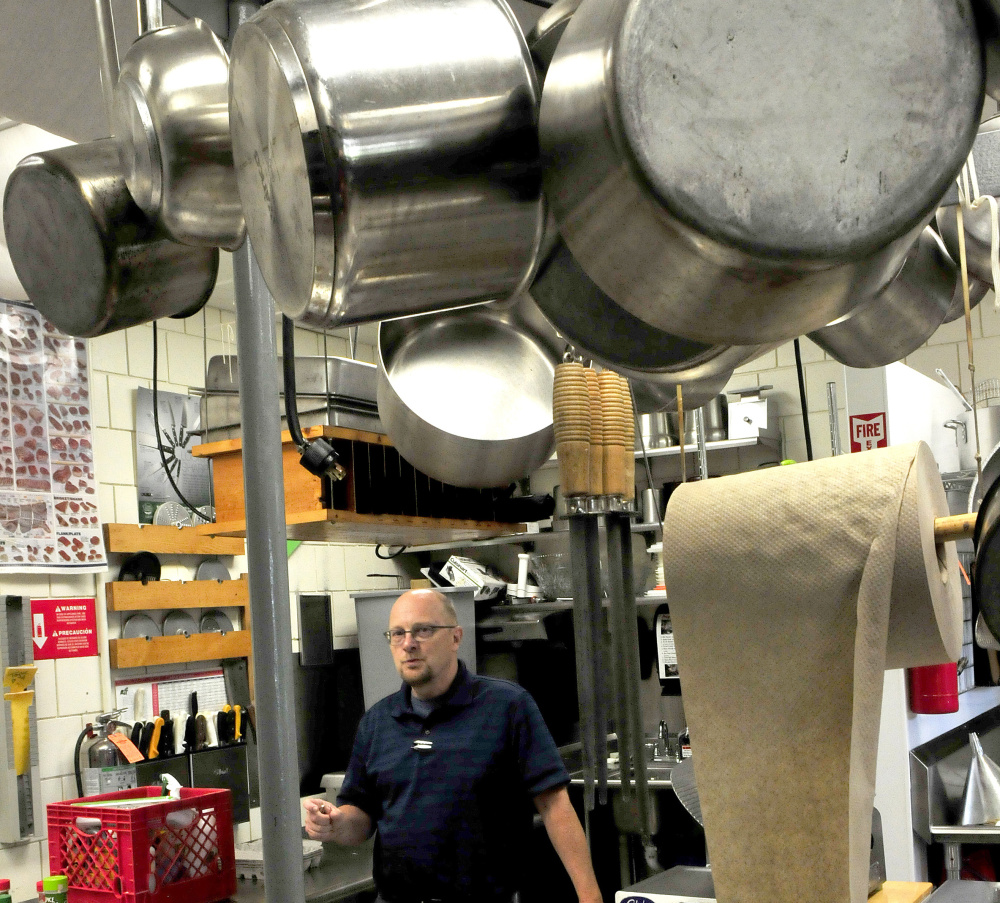Gov. Paul LePage made headlines recently when he drew criticism for saying teachers “are a dime a dozen” while praising vocational training and mentorship at the grand opening of a workforce development facility at Cianbro in Pittsfield.
The governor’s remarks seemed to imply that there’s a shortage of vocational and technical education in Maine amid an abundance of traditional school educators.
But state and local data and interviews with tech education instructors show a more complicated picture, wherein schools are struggling to fill traditional education jobs even as vocational-style instruction gets more attention and gains popularity.
Meanwhile, schools statewide are struggling to fill teaching positions and the governor’s open disregard for the profession is partly to blame, said Lois Kilby-Chesley, president of the Maine Education Association, the state’s largest teachers union.
“It’s a hard time out there for education right now,” she said. “And when you have people who continually disrespect what we do and give the public the idea that it can be filled by anyone … that makes it even harder for us.”
Overall, there were a total of 16,533 teaching positions in Maine during the 2016-2017 academic year with 13,436 classroom teachers, which included 343 career and technical education teachers, according to the Maine Department of Education.
The Maine Department of Education has set a goal of doubling by 2020 the enrollment of students in the state’s 27 regionally dispersed, hands-on career and technical education learning centers, formerly known as vocational schools. The department reports that students who participate in CTE education have a higher graduation rate than those who don’t and that low-income families are able to reap the benefit of the opportunities presented by the programs.
In 2015, just over 8,000 students were enrolled in high school CTE programs in Maine, according to the Maine Department of Education. Nearly 3,200 received a diploma that year from their sending schools. In 2016, both those numbers increased, with just over 8,500 students enrolled across the state, which accounts for 14 percent of Maine high school students. Just under 3,300 received a diploma from their regular high school.
Despite a year-over-year increase of Maine teachers, there is still a glaring need for more educators in Maine, said Kilby-Chesley, of the Maine Education Association.
The Maine State Chamber of Commerce and Educate Maine, a nonprofit group that works to advance policies and practices that prepare Maine students for postsecondary education and the workforce, recently joined forces to close the skills gap in the state by taking steps to push the benefits of CTE, among them the introduction of CTE to younger students, a plan that appeals to David Dorr, director of the Somerset Career and Technical Center in Skowhegan.
The center, which operates at Skowhegan Area High School, served some 300 students from five surrounding towns in 2016-2017, providing them with a variety of career-oriented skills.
Most students start in a CTE school in their junior and senior years of high school, but Dorr would like to see schools reaching out to students when they’re younger than that, in eighth or ninth grade.
“Get them excited about your craft,” Dorr said.
At the Capital Area Career and Technical Center in Augusta, an even larger pool of students come for vocational training. Director James Holland said his center and staff of 22 serve eight sending high schools.
Just under 400 students attended last year, taking 16 programs ranging from traditional skills such as plumbing and electric work to graphic design.
Holland said students choose to be in CTE programs and must apply. The curriculum is based on state-approved standards. Sending schools are responsible for conferring diplomas, while students who successfully complete their CTE programs earn certification, such as a “helper’s license,” or pass exams for certification. Students who pursue a law enforcement program find a door open to the military.
“There’s a good number that continue (on to college),” Holland said.
Copy the Story LinkSend questions/comments to the editors.




Success. Please wait for the page to reload. If the page does not reload within 5 seconds, please refresh the page.
Enter your email and password to access comments.
Hi, to comment on stories you must . This profile is in addition to your subscription and website login.
Already have a commenting profile? .
Invalid username/password.
Please check your email to confirm and complete your registration.
Only subscribers are eligible to post comments. Please subscribe or login first for digital access. Here’s why.
Use the form below to reset your password. When you've submitted your account email, we will send an email with a reset code.